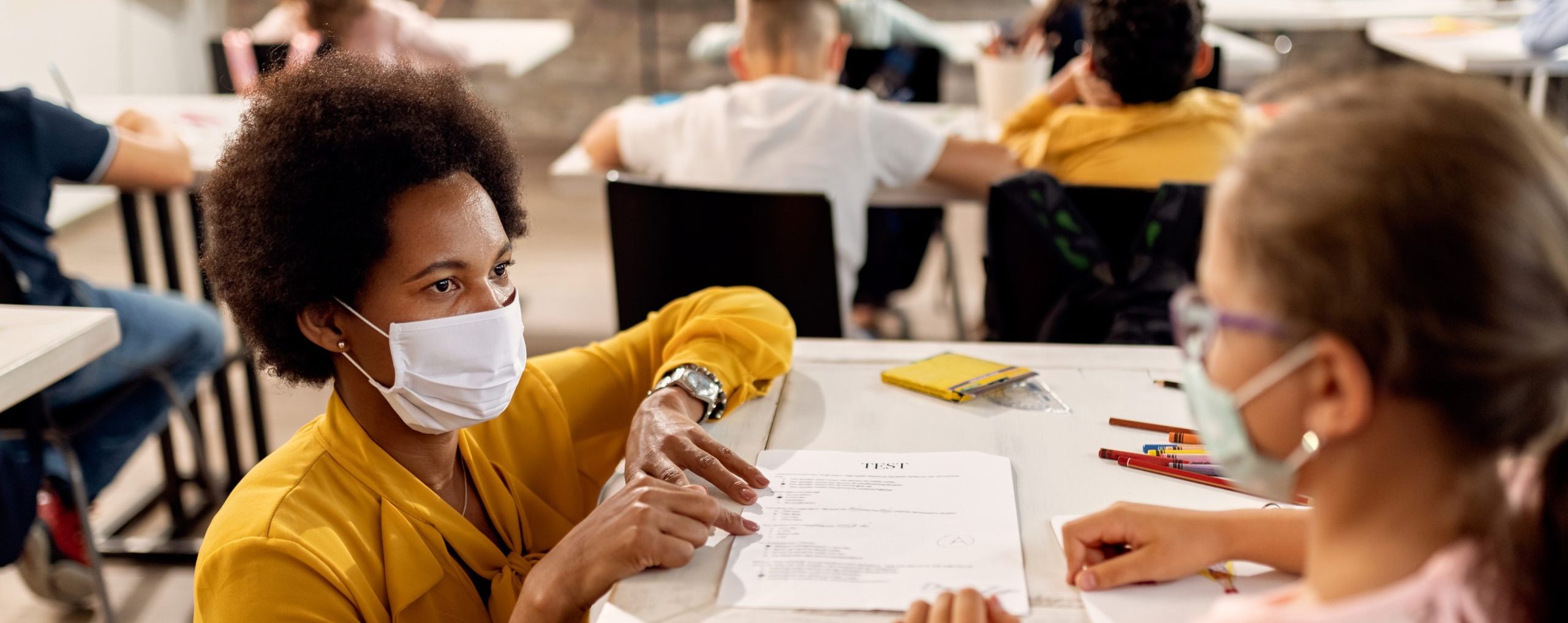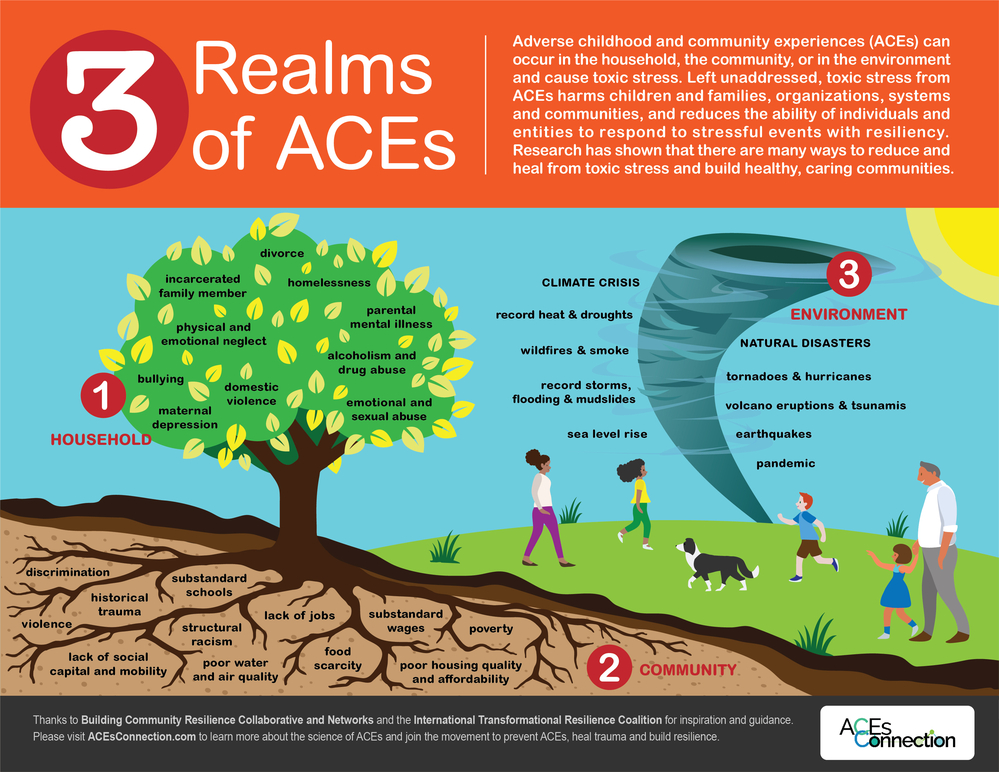
Many parents are breathing a sigh of relief this month as their children return to in-person learning at school. While it’s a welcome break from juggling the competing needs of home schooling and work for some parents, others have mixed feelings about schools re-opening. Parents’ responses range from mild concern to extreme reservation. The COVID-19 pandemic may have caused intense feelings of stress, fear, and apprehension but the return to school brings its own set of uncertainties. Are our schools safe? Are we, as a society, prepared to tackle future outbreaks? Is our children’s mental health being considered?
While the return to school may seem like a return to normal, it’s anything but. Schools will be tasked with managing the results of the past year when homes have been thrown into turmoil, financial strain has been extreme, and children’s minds have been confused and overwhelmed by the constant barrage of (often mixed) pandemic messages. Prior to the pandemic, children were already experiencing more mental health concerns, including escalating rates of anxiety, depression, and suicide rates tripling from 2007-2017 for those ages 10-14 years old. Researchers expect the post-pandemic mental health crisis to cause these numbers to rise even more.
ACEs and Children’s Environments
Pandemic pandemonium aside, every day thousands of children arrive at school deeply affected by the circumstances in their homes and communities. ACEs describe specific adverse experiences that occur before the age of 18, but childhood trauma can be caused by circumstances that exist outside the home, too. The latest understanding of ACEs acknowledges that in the absence of buffering relationships, intangible situations like racism, fear of neighborhood gangs, bullying, and countless other unmitigated societal ills can cause the toxic stress that hampers brain development and delays children’s normal, healthy growth.
Currently, children have the added burden of an international health disaster. We cannot underestimate the profound impact this global crisis has had on our children. We also cannot fully predict the extent and exact nature of the mental health fallout, or ‘echo pandemic’ we are likely to experience as children come to terms with the isolation, changed family circumstances, fear, and anxiety of spending months and months at home, many of them in abusive or neglectful environments.
The following graphic, courtesy of ACEs Connection, shows how adversity affects children at home, in the community, and in the overall atmosphere or environment in which they live. Children bring adversity from all three of these realms with them to school.

Service at Schools Make Sense
So why does it make sense to focus a large portion of our childhood mental health efforts on schools? Quite simply because that’s where children are for a good portion of most days. Bringing services to where children are makes sense, but it also makes for stronger, better schools and improved educational outcomes. According to the National Association of School Psychologists, mental health plays a crucial part in a child’s academic success as well as their future success in life. Students who have access to social–emotional and mental health support at school do better in their studies and are generally better adjusted to face life’s ups and downs. These children enjoy stronger relationships and are more likely to participate in a wide range of sports and extracurricular activities. A school that works on its mental health climate and encourages both student connectedness and teacher wellbeing is a school that is going to be a healthy place where students feel free to express themselves and where behavior in the classroom is well managed.
Despite the fact that schools which embrace metal health services have been shown to thrive, there is a growing unmet need for mental health services for children and youth. According the U.S. Department of Health and Human Services, one in five children and adolescents experience a mental health problem during their school years. Unfortunately, an estimated 60% of students do not receive treatment due either to stigma or simply the lack of access to services. Of those who do get help, however, nearly two thirds do so only in school. Issues can include anything from depression, to stress and anxiety, bullying, family problems at home, learning difficulties, and alcohol and substance abuse. Serious mental health problems, such as self-harming and suicidal ideation, are on the rise, too.
The Right Intervention At the Right Age
Since we work with children from birth to 18, Center for Child Counseling has formed a close partnership with the Palm Beach County School District in order to bring our unique blend of trauma-informed resiliency building to as many children as possible. Our approach has always focused on prevention and early intervention services, as well as targeted clinical care for those children who need it most. The skills our therapists teach can benefit a child throughout their lifetime, such as self-regulation, executive functioning skills, and healthy relationship building. Our approach is science- and research-based and is founded on the latest understanding of children’s developing brains.
As a general rule, the earlier we can connect with children, the better the outcome is likely to be. This is especially true for children impacted by trauma and abuse, those who are dealing with ACEs. So many of the behaviors exhibited in classrooms (and which are so disruptive to all students) are really just symptoms of an underlying problem a child is finding it difficult to express. Before the necessary language skills develop, these experiences may be expressed by fighting, biting, hitting, and unruly outbursts. Our skilled therapists look for what is happening in a young child’s life that is prompting these behaviors.
But it’s not just children who are struggling who benefit from our in-school support. All children need to develop resiliency or the ability to bounce back from life’s setbacks. Children who do well in the face of hardship usually have a biological resistance to adversity and strong relationships with the important adults in their family and community. Often, teachers can play this role along with parents and caregivers. You can learn more about teachers as buffers in one of our prior blog posts.
Having a mental health professional on-site and available to respond can make all the difference in the environment every student and teacher experiences on a daily basis in their school. Center for Child Counseling operates three programs within the school system:
CCSEW (Childcare and Community Social-Emotional Wellness)
Our CCSEW Program brings on-site prevention, early intervention, and counseling services into childcare centers, schools, and shelters in Palm Beach County. Developing the capacity of adults, through workshops and consultation, in our community to meet the social-emotional needs of young children is an essential part of this program. Our team of CCSEW therapists are co-located in select Palm Beach County Schools as well as childcare centers and shelters throughout Palm Beach County.
Our therapists provide prevention, early intervention, and teacher support services. These services are co-located, with our therapists and interns working as a part of the fabric of the school and community to meet the therapeutic needs of children and their families.
School-Based Mental Health Program
Our School-Based Mental Health Program is conducted by a team of skilled therapists co-located in select Palm Beach County schools who work on-site with more than 1,200 students from pre-Kindergarten to 5th grade. We provide services including classroom support, contact with teachers and caregivers, crisis intervention, and one-on-one therapy support within the school setting, at home, and out in the community.
The goal of this program is to meet the needs the highest-risk students, some of whom may not be identified otherwise and may never be linked to the mental health services that will undoubtedly help them.
Created as part of the Marjory Stoneman Douglas (MSD) Public Safety Act for school safety, this program aims to provide students and their families with evidence-based mental health treatment that includes assessment, diagnosis, intervention, treatment, and recovery.
SNAP® – Stop Now and Plan
Funded by the Florida Network of Youth and Family Services, the Stop Now And Plan (SNAP®) Program serves as a “front-end” resource to the Department of Juvenile Justice, Office of Prevention, for at-risk youth aged 6-11 and their families.
Each SNAP® program provides high-risk youth and their families’ strategies to increase pro-social skills that will help the youth stay in school and out of trouble by making better choices throughout the 13-week program. Youth and their families participate in engaging activities such as group discussions, role-playing, interactive games and self-reflection to address topics including dealing with anger, learning how to cope and practice self-control, engaging in problem solving and learning not to bully and how to prevent bullying. SNAP® is an evidence-based behavioral model that provides a framework for teaching children struggling with behavior issues, and their parents, effective emotional regulation, self-control and problem-solving skills. The primary goal of SNAP is to keep children in school and out of trouble by helping them make better choices “in the moment.”
So, as your children head back to school to differing degrees, advocate for their mental health and ask if essential services are available to them. If your school has an on-site therapist, get to know him/her and reach out to them with your questions. The Center for Child Counseling team is equipped to help you with COVID-19-related issues and any of the normal anxieties of life your child might be facing. ACEs at home, in the community, or in the overall environment don’t necessarily have to result in trauma for your child or lifelong negative consequences. Your response to these experiences can make all the difference in the world to your child and their future happiness at school and in life.
Sign up now for news, events, and education about Adverse Childhood Experiences (ACEs) and promoting resilience.
By submitting this form, you are consenting to receive emails from: Center for Child Counseling, 8895 N. Military Trail, Palm Beach Gardens, FL, 33410. You can revoke your consent to receive emails at any time by using the SafeUnsubscribe® link, found at the bottom of every email.
